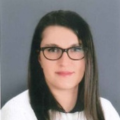Lesson: Are You Doing the Right Job for You? – Audio
It’s a bit cliché but still so true. ‘Find a job you enjoy doing, and you will never have to work a day in your life.’ In the dialogue, you’ll hear a school teacher trying to teach professions to students.
Download the audio
Download the transcript and the grammar notes



Transcript
Öğretmen: Günaydın çocuklar!
Öğrenciler: Günaydın öğretmenim!
Öğretmen: Hadi dersimize başlayalım. Bugünkü dersimizde meslekleri öğreneceğiz. Siz hangi meslekleri biliyorsunuz?
Öğrenciler: İtfaiyeci, doktor, eczacı, bahçıvan… Ben bunları biliyorum.
Öğretmen: Çok güzel teşekkür ederim Ahmet. Şimdi isterseniz ben size biraz anlatayım? Bugün dersi farklı işleyeceğiz. Ben soracağım ve siz ne olduğunu bana anlatacaksınız. Anlaştık mı?
Öğrenciler: Anlaştık.
Öğretmen: Tamam o halde. Aşçı kimdir?
Öğrenciler: Ben biliyorum. Aşçı yemek yapan kişidir. Babam anneme her zaman çok iyi bir aşçı olduğunu söyler.
Öğretmen: Aferin sana çok güzel. Peki astronot kimdir?
Öğrenciler: Astronot uzaya çıkan bilim adamıdır öğretmenim.
Öğretmen: Avukat kimdir?
Öğrenciler: Bilmiyoruz öğretmenim.
Öğretmen: Avukat hak savunan, yasa önünde yol gösteren kişidir çocuklar. Peki arkeolog?
Öğrenciler: Onu da bilmiyoruz öğretmenim.
Öğretmen: Arkeolog kazı yaparak eski eserleri açığa çıkaran kişidir.Müzede gördüklerinizin çoğunu onlar toprak altından çıkarırlar.
Öğrenciler: Ben arkeolog olmak istiyorum öğretmenim. Bir çizgi filmde görmüştüm çok güzeldi.
Öğretmen: Çok iyi! Umarım hepiniz sevdiğiniz meslekleri yaparsınız.
Öğrenciler: Fırıncı nedir öğretmenim?
Öğretmen: Fırıncı her sabah ekmek aldığımız fırınlarda çalışıp bize ekmek ve öteki çeşit yiyecekleri yapan abidir.
Öğrenciler: Çok gerekli bir meslek değil mi öğretmenim?
Öğretmen: Kesinlikle haklısın. Peki kuaför kimdir söyleyin bakalım.
Öğrenciler: Kuaför annemin saçlarını yapan insandır öğretmenim. Saçlarını yıkayıp kesiyor ve boyuyor.
Öğretmen: Aferin çocuklar. Her insan kendine bir meslek seçer. Sizde ileride büyüyünce çok seveceğiniz bir meslek seçin. O zaman hep mutlu olursunuz.
Translation
Teacher: Good morning, kids!
Student: Good morning, teacher!
Teacher: Let’s start our lesson, we will learn the professions in today’s lesson. What professions do you know?
Student: Fireman, doctor, pharmacist, gardener, I know these ones.
Teacher: Thank you very much, Ahmet. Let me tell you more if you want now?
Student: Yeah.
Teacher: Today we will be doing the lesson differently. I will ask questions and you will tell me what it is?
Student: Deal.
Teacher: Okay then. Who is the cook?
Student: I know. The cook is the person who cooks. My dad always tells my mom that he is a very good cook.
Teacher: Well done to you. So who is the astronaut?
Student: The astronaut is a scientist who goes into space, my teacher.
Teacher: Who is a lawyer?
Student: We don’t know, teacher.
Teacher: The lawyer is a person who defends rights and guides to the law. So archaeologist?
Student: We don’t know him either, teacher.
Teacher: The archaeologist is the person who exposes ancient artifacts by digging. They took most of what you see in the museum out under the soil.
Student: I want to be an archaeologist, teacher. It was so nice I saw it in a cartoon.
Teacher: Very good! I hope you all do the jobs you love.
Student: What is a baker, teacher?
Teacher: The baker is the older brother (person) who works in the bakeries where we buy bread every morning and makes us bread and other kinds of food.
Student: Isn’t it a very needed profession, teacher?
Teacher: You are absolutely right. So tell me who is the hairdresser.
Student: The hairdresser is the person who does my mom’s hair, teacher. She washes and cuts her hair and paints it.
Teacher: Well done kids. Every person chooses himself / herself a profession. Choose a profession that you will love when you grow up in the future. Then you are always happy.
Grammar Notes
Bugünkü dersimizde meslekleri öğreneceğiz.
In (our) today’s lesson we will learn the professions.
Bugün, dersimizde meslekleri öğreneceğiz.
Today, in our lesson we will learn the professions.
Dünkü hava çok güzeldi.
Yesterday’s weather was nice.
—
Ders işlemek
Learn/Teach a lesson (usually in the classroom with teacher and students)
Öğrenciler sessizce ders işliyor.
Students are studying quietly
Öğretmek bugün dersi hızlı işliyor.
Teacher teaches the lesson fast today.
Bugün dersi farklı işleyeceğiz.
Today we’ll teach/learn the lesson differently.
Tamam o halde. (Daily-life)
Okay then.
—
Aşçı yemek yapan kişidir.
The cook is the person who cooks.
Astronot uzaya çıkan bilim adamıdır öğretmenim.
My astronaut is a scientist who goes into space, teacher.*
*In the primary/secondary schools, students call their teacher “öğretmenim” (my teacher) whether in high school and university, they call “hocam”.
Avukat hak savunan, yasa önünde yol gösteren kişidir çocuklar.
A lawyer is a person who defends rights and guides before the law.
Arkeolog kazı yaparak eski eserleri açığa çıkaran kişidir.
The archaeologist is the person who unearths ancient artifacts by digging.
Fırıncı her sabah ekmek aldığımız fırınlarda çalışıp bize ekmek ve öteki çeşit yiyecekleri yapan abidir.
The baker is the brother who works in the bakeries where we buy bread every morning and makes us bread and other kinds of food.
—
Bana ne dedin?
What did you say to me?
Sana iyi bir öğretmensin dedim.
I told you’re a good teacher.
Sana iyi bir öğretmen olduğunu söyledim.
I told you that you/she/he/ is a good teacher.
The Suffix “-DIğInI”
When you are forming such a sentence, it’s better to use “söylemek” with the structure “-DIğInI”.
Sana iyi bir öğretmen olduğumu söyledim.
I told you that I’m a good teacher.
Sana iyi bir öğretmen olduğumuzu söyledim.
I told you that we are good teachers.
Sana iyi bir öğretmen olduklarını söyledim.
I told you that they are good teachers.
Size iyi bir öğretmen olduğunuzu söyledim. (Formal)
I told you that you are good teachers.
—
Astronot uzaya çıkan bilim adamıdır* öğretmenim.
We have made a little mistake here. “Bilim adamı” is not correct. “Bilim insanı” is the correct one since there are many women scientists as well. Unfortunately, languages and Turkish have this kind of gender generalizations which is replaced by new words in the last decades.
—
Babam anneme her zaman çok iyi bir aşçı olduğunu söyler.
My dad always tells my mom that she is a very good cook.
Babam anneme her zaman “çok iyi bir aşçısın” der. (Correct with or without the apostrophes)
My dad always tells my mom that you are a very good cook.
Vocabulary
İtfaiye
Fire department
İtfaiyeci
Fire fighter
Eczane
Pharmacy
Eczacı
Pharmaceutist
Bahçıvan
Gardener
Fırın
Oven, bakery
Fırıncı
Baker
Aşçı
Cook
Avukat
Lawyer
Meslek
Profession
Yasa
Law, act
Bilim
Science
Bilim insanı
Scientist
Öteki
Other
Çeşit
Type
Öteki çeşit
Other type
Diğer
Other
Toprak
Earth
Toprak altı
Underground
Kazı yapmak
To dig, to excavate
Boya
Dye, paint, color
Boyamak
To paint
Kesmek
To cut
Aferin
Well done




